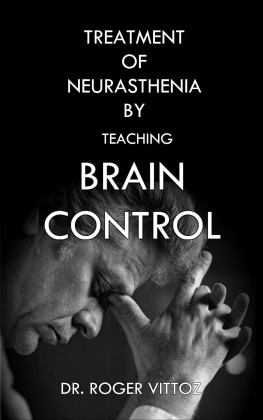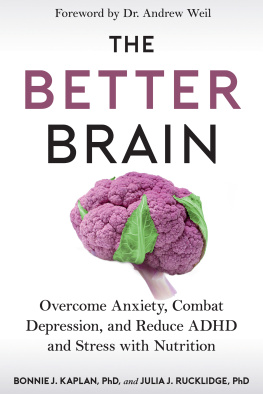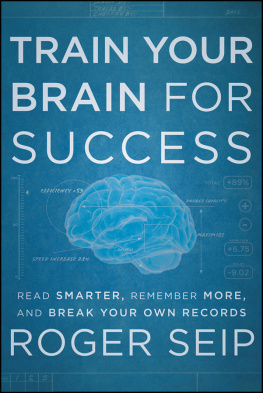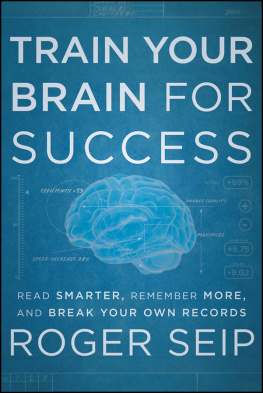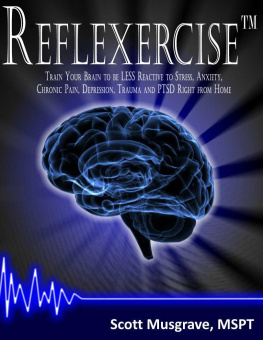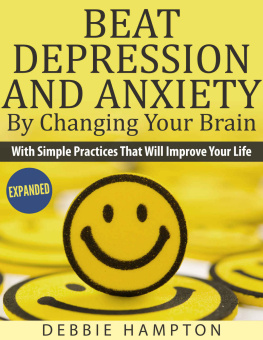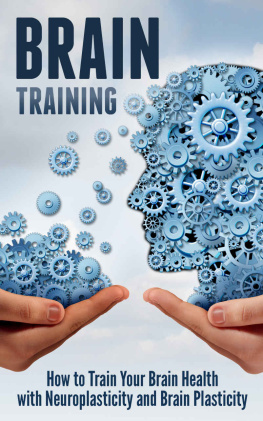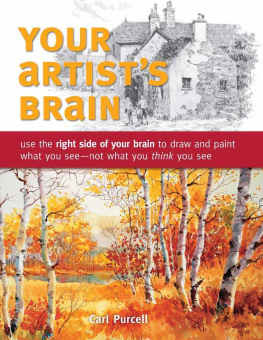Roger Vittoz - Treatment of Neurasthenia by Teaching Brain Control
Here you can read online Roger Vittoz - Treatment of Neurasthenia by Teaching Brain Control full text of the book (entire story) in english for free. Download pdf and epub, get meaning, cover and reviews about this ebook. year: 2017, genre: Religion. Description of the work, (preface) as well as reviews are available. Best literature library LitArk.com created for fans of good reading and offers a wide selection of genres:
Romance novel
Science fiction
Adventure
Detective
Science
History
Home and family
Prose
Art
Politics
Computer
Non-fiction
Religion
Business
Children
Humor
Choose a favorite category and find really read worthwhile books. Enjoy immersion in the world of imagination, feel the emotions of the characters or learn something new for yourself, make an fascinating discovery.
- Book:Treatment of Neurasthenia by Teaching Brain Control
- Author:
- Genre:
- Year:2017
- Rating:3 / 5
- Favourites:Add to favourites
- Your mark:
- 60
- 1
- 2
- 3
- 4
- 5
Treatment of Neurasthenia by Teaching Brain Control: summary, description and annotation
We offer to read an annotation, description, summary or preface (depends on what the author of the book "Treatment of Neurasthenia by Teaching Brain Control" wrote himself). If you haven't found the necessary information about the book — write in the comments, we will try to find it.
Treatment of Neurasthenia by Teaching Brain Control — read online for free the complete book (whole text) full work
Below is the text of the book, divided by pages. System saving the place of the last page read, allows you to conveniently read the book "Treatment of Neurasthenia by Teaching Brain Control" online for free, without having to search again every time where you left off. Put a bookmark, and you can go to the page where you finished reading at any time.
Font size:
Interval:
Bookmark:

TREATMENT OF NEURASTHENIA
BY TEACHING OF BRAIN CONTROL
BY
DR. ROGER VITTOZ
TRANSLATED BY
H. B. BROOKE
LONGMANS, GREEN, AND CO.
39 PATERNOSTER ROW, LONDON
NEW YORK, BOMBAY, AND CALCUTTA
1911
All rights reserved
Treatment of Neurasthenia by the Teaching of Brain Control.
Table of Contents
Reappearance of Former Bad Symptoms Owing to Impressions Left on the Brain (French, Clichs).
Introduction.
S o many works on this subject have appeared of recent years that I hope I may be excused if I add this modest contribution to the number; one of my chief reasons for doing so is a desire to comply with wishes expressed by my patients. I should also like to describe the treatment from my own point of view, and to throw light on the causes of those nervous illnesses known as neurasthenia, psychoneurosis or psychasthenia.
As I am addressing myself chiefly to those suffering from these illnesses, I will endeavour to simplify as far as possible whatever part of this treatise might seem to them obscure. My object is to show them as well as I can why they are ill and how they can cure themselves.
My method of training is founded on the fact that every form of neurasthenia is due to the brain working abnormally; only by realizing this is it possible to arrive at a cure.
I will now try to explain this abnormal working of the brain, its causes, and the treatment by which it may be overcome.
The title of this treatise explains itself; it is only by studying the brain control of those suffering from neurasthenia that imperfections of that control can be realized; the psychological causes of such illnesses are due to insufficient brain control, and by realizing this insufficiency we shall arrive at the necessary mode of treatment.
I admit that fuller explanations should no doubt be given of certain facts, but the reader must bear in mind that it is my wish to give here as concise an outline of the treatment as possible.
I would ask that the results I have obtained may be accepted in proof of my theory, and would beg my colleagues not to pass too hasty a judgement on the treatment I am about to describe.
My object will have been attained if this simple treatise should be the means of affording to those who are ill (namely, to those suffering from what I will call insufficient brain control) any help, or if it should even afford them some hope of a cure.
Brain Control.
Duality of the Brain.
B efore dealing with the question of brain control it is of the highest importance to realize the working of the brain in regard to its faculties of perception and elaboration of ideas, sensations and actions.
Of the many modern theories let us take the most simple, i.e. that which admits of two different working centres, called the conscious or objective, and the unconscious or subjective brain.
While admitting that none of the above expressions give a precise definition, we will employ the terms objective and subjective. The existence of two brains having been accepted as a fact, we will admit that the subjective brain is in a general way the source of the ideas and sensations, and that the objective brain in a sense focusses them, that is to say that reason, judgement and will are controlled by the objective brain.
By admitting the existence of this duality, we shall be able to understand the meaning of brain control.
This duality is little to be noticed in a man whose brain is in a healthy state, as his ideas or sensations are the result of the working of the two brains, and he does not distinguish the working of the one brain from that of the other.
In a great number of nervous illnesses this duality is at any rate marked, and the sufferer is generally more or less aware of it.
Some have assigned to the subjective brain the origin of certain cases of neurasthenia, but it seems more probable that this must be looked for in the want of balance and unity between the two brains; it is to their proper correlation that a man owes his mental health, and his illness is due to the more or less apparent separation of the objective from the subjective brain.
It would seem at first sight as though perfect balance should depend on whether the objective and subjective brains are of equal power; as a matter of fact, this is of no vital consequence, as either brain may preponderate in a perfectly balanced individual, and the subjective brain may, in some cases, be found to be more fully developed, especially in nervous persons, though there may be no signs of illness. All that is necessary is that there should be sufficient brain control.
Definition of Brain Control.
Brain control may be defined as a faculty which is inherent in a man in a normal state of health, and keeps the balance between his two brains. When we speak of normal brain equilibrium we mean that every idea, impression or sensation is controlled by reason, judgement and will, that is to say, that these can be judged, modified, or set aside as required.
A man in a normal state of health is not fully conscious of this faculty; he realizes that he has control of his brain, but does not at all understand how this control works; on the other hand, a neurasthenic perceives it more clearly, and realizes that he lacks something; that something is brain control.
Every idea and sensation is focused by this brain control, which also acts in certain cases as a check, regulating the psychological and even (as we shall see later) the physiological functions of the brain, controlling actions as well as ideas. The brain control of a man in a normal state of health is automatic, that is to say, it acts of its own accord without any effort of the will, and, moreover, develops with age and education. It may therefore be said to be the natural attribute of a healthy man.
This faculty dominates the whole life of the individual, and it may even be said that perfect health is impossible without this brain control; we are, of course, not speaking of cases where there may be a temporary lack of brain control, as, for instance, in a fit of anger.
We have seen what brain control should be, let us now see what is meant by lack of this control.
Lack of brain control. It is easy to imagine the state of one lacking this regulating faculty; his uncurbed brain would, without a controlling power, be indeed in a state of anarchy. A prey to every impulse, subject to all fears, unable to reason or weigh an idea, forced to receive all the impressions of his subjective brain, he is nothing but a wreck, doomed to a life of suffering.
Complete lack of brain control is exceptional among the cases with which we are now dealing; what we find more frequently among neurasthenic persons is insufficient or unstable control.
Insufficiency or instability of control. In the case of insufficiency, brain control exists as a faculty, but has not sufficient effect, either owing to its lack of development or the existence of certain defects. The objective brain in such a case has not sufficient power over the ideas and impressions.
The sufferer will judge and reason in a normal way, and will nevertheless be dominated by ideas and impressions which he himself recognizes as absurd or exaggerated, and over which his will has no power; this is the typical neurasthenic.
The phenomena of instability of control are in the main the same; in fact, the sufferers state of health is continually changing from good to bad, and that for no evident reason. These changes recur from time to time; a gay mood may, for instance, be succeeded by a fit of depression, and, whether it be his health, temper, or ideas, all are subject to great variation.
Font size:
Interval:
Bookmark:
Similar books «Treatment of Neurasthenia by Teaching Brain Control»
Look at similar books to Treatment of Neurasthenia by Teaching Brain Control. We have selected literature similar in name and meaning in the hope of providing readers with more options to find new, interesting, not yet read works.
Discussion, reviews of the book Treatment of Neurasthenia by Teaching Brain Control and just readers' own opinions. Leave your comments, write what you think about the work, its meaning or the main characters. Specify what exactly you liked and what you didn't like, and why you think so.

